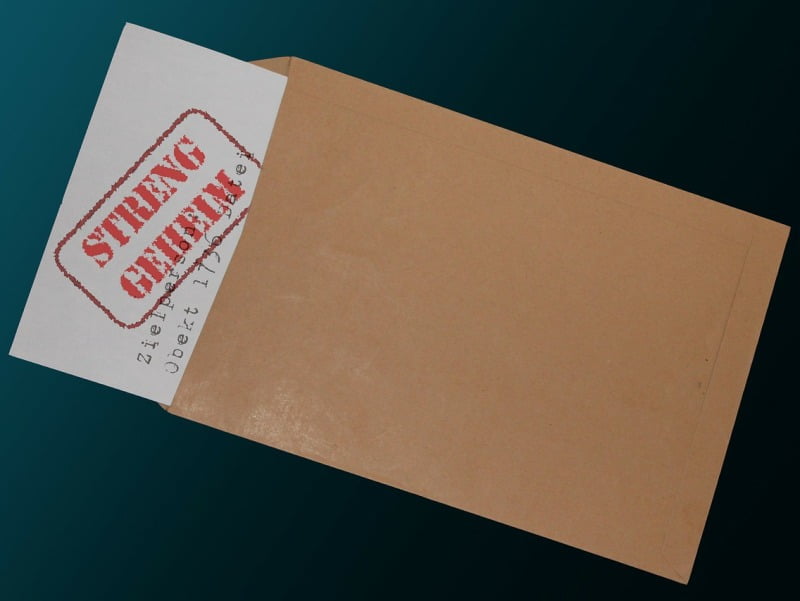Reinier advises national and international companies
reinier.russell@russell.nl +31 20 301 55 55The new Act on the Protection of Trade Secrets (WBB) ensures more effective protection of trade secrets than at present. The Act specifies what a trade secret is and by which procedure damages and suspension of the violation can be claimed. In addition, the Act ensures to maintain confidentiality of trade secrets during the procedure.

The Dutch government is currently in the process of implementation of the European Trades Secrets Directive. The Directive aims at protecting non–public company information & knowhow from being obtained, used or disclosed unlawfully. The Act on the Protection of Trade Secrets (Wet bescherming bedrijfsgeheimen; WBB) will soon enter into force for the purpose of implementation of the Directive. Prior to the entry into force of this Act the European Trades Secrets Directive will have direct effect in the Netherlands.
The Act on the Protection of Trade Secrets ensures better protection of trade secrets. A trade secret is considered information which is:
A trade secret is not necessarily technical knowledge of models or products. Marketing strategies, business plans and trade information fall under trade secrets too.
The Act on the Protection of Trade Secrets provides that obtaining a trade secret without the permission of the holder of the trade secret is unlawful if:
The Act on the Protection of Trade Secrets stipulates that, the use or making known to the public of a trade secret could be unlawful if the trade secret is used or disclosed without consent of the holder of the trade secret by a person who:
The Act on the Protection of Trade Secrets also refers to situations in which obtaining, use or disclosure of trade secrets can be lawful. For instance, in investigative journalism, which is protected by freedom of expression or regarding disclosure of misconduct, mistakes or illegal activities by whistleblowers.
If a trade secret is obtained, used or disclosed unlawfully, a civil procedure can be initiated in court. The Act on the Protection of Trade Secrets provides that the holder of a trade secret can either apply for measures to the court in interlocutory proceedings or to the ordinary court. That way, suspension of the unlawful use can be imposed or a ban on production issued. Also, the holder of a trade secret may claim damages and full reimbursement of court fees similar to other matters regarding intellectual property.
To be able to show that a trade secret was violated, the trade secret will have to be disclosed, which is not the intention of the holder of the trade secret. By the implementation of the Directive the court can, upon application, specify exhibits as confidential and limit the number of persons with access thereto. In addition, upon request a non-confidential version of the decision can be published online where the parts including trade secrets have been deleted or edited.
The new Act will not make the confidentiality clause in an employment contract dispensable, as this clause may have a broader scope than what is defined as a trade secret in the Act. In the event of theft of trade secrets a report can also be filed with the police in addition to a civil procedure of the Act on the Protection of Trade Secrets.
Russell Advocaten will monitor the developments regarding the Act on the Protection of Trade Secrets and, with our knowledge of corporate law and intellectual property rights, we will be able to inform you and provide you with advice on these issues. Please contact us:
How important is a confidentiality clause in an employment contract or settlement agreement and how can it be maintained by the employer?
The franchise agreement and the distribution agreement are very similar, but there are also important differences. What are the consequences if you conclude a franchise agreement when it is actually a distribution agreement or vice versa? How can you avoid this misunderstanding?
With the Dutch Tax and Customs Administration again enforcing the Deregulation of Assessment of Employment Relationships Act (DBA Act), these questions have become even more important. In a recent ruling on Uber drivers, the Supreme Court provided additional guidance on how to determine whether someone is a self-employed person.
The government has outlined in a letter how it intends to translate the proposals from the Buma Committee’s advice into regulations. What does this mean in practice for private individuals who own art or other cultural goods? But first: what are the rules for exporting protected cultural goods at the moment?
The government has outlined in a letter how it intends to translate the proposals from the Buma Committee’s advice into regulations. What does this mean in practice for private owners of art or other cultural goods? Will this solve the problems of owners?
If employers want to terminate the employment of an employee for poor performance, they need to take a number of steps before they are allowed to do this. Which actions do they have to take? What issues should expats take into account?